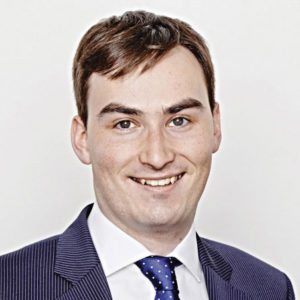Training and qualification
After graduating from Cambridge with a Masters in Physics in 2014, I joined Hoffmann Eitle as a technical assistant. Training is carried out in the main by study of files followed by a detailed discussion of them with qualified attorneys in the firm, presided over by my supervising partner.
As formal training for the UK and European patent attorney qualifying examinations, the firm sent me on the Queen Mary Certificate in Intellectual Property Law course (which substitutes for the UK foundation examinations set by CIPA). Earlier this year I passed the foundation European examination, and am currently preparing for the final British and European examinations. These final examinations are challenging, with preparation for them requiring many months of study.
My firm
Hoffmann Eitle is a relatively large IP firm with offices in all major European IP centres. I am based in the London office which is a close knit community of about 30 people. Within this size of office, it was easy to quickly get to know and work with everyone, and I now have a lot of sources for training.
I had a secondment for six months in our Munich office, which put me in contact with an expanded range of clients and allowed me to observe first hand the extensive inter partes work of its qualified attorneys at the EPO. As EPO practice is based upon a civil law system, as opposed to common law prevalent in the UK, there is an evident advantage in having spent some training time in continental Europe.
What do I actually do?
I work on patents and patent applications in fields including software, electronics, telecommunications and optics, from initial drafting to prosecution and finally post-grant proceedings. I frequently encounter cases in technical fields that I knew little about beforehand, which suits my general interest in technology. The work is invariably intellectually challenging and associated with short deadlines. Drafting new applications can be intensive but I find it particularly satisfying because it involves working directly with inventors who are able to explain the technology and its significance in their employer’s business.
Patent prosecution on the other hand is more of an intellectual puzzle. No two technologies are described in exactly the same terms, so there is something very satisfying about crystallising exactly what makes your (client’s) invention different from previous technology.







